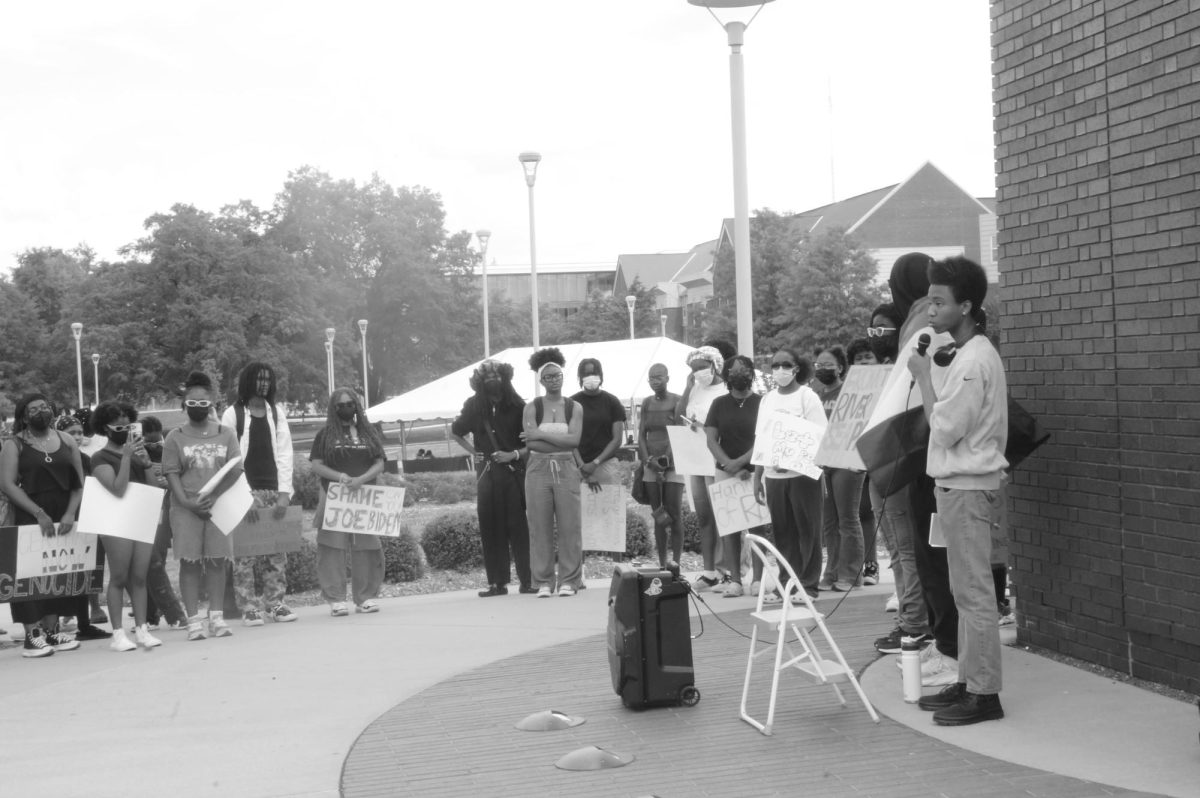Anyone can talk about the values they support, but how many people can say they put their money where their values are?
Not many, and that is why four Guilford College students — junior Julia Draper, senior Tom Clement and sophomores Lillian Collins and Marek Wojtala — spent the January term analyzing how well Guilford’s endowment investments align with its core values.
“It’s really difficult to tell what someone’s priorities are when they talk about them, but it’s really easy to tell by the way that they spend their money,” said Draper. “That’s what Strategic Reinvestment Scholars is about: asking Guilford to live its core values by the way that it has invested $65 million.”
SRS began its investigation by finding out how Guilford invested its endowment, which is primarily made up of donations. They realized that Guilford was actually invested in several problematic funds, like a fund that tracks the S&P 500.
In other words, Guilford invested in a fund that includes companies that participate in troublesome practices, like investing in fossil fuels or supporting unethical labor standards. This contradicts Guilford’s core values of equality, justice and stewardship.
“I expected that we would be invested in a couple of the mega corporations, like Exxon and Chevron, but it amazed me how many of them we were invested in,” said Wojtala.
By divesting from companies that invest in fossil fuels, Guilford would show its loyalty to the principles the College prides itself on.
“I think Quakers have a history of being leaders in social justice movements,” said Clement. “This could be an example of that, and it could also re-establish Guilford as an institution that is committed to sustainability.”
Another problem with investing in an index fund with so many different companies is that divesting at all means divesting from the entire fund and all the companies within it, not just the ones with disagreeable practices.
Draper, Clement, Collins and Wojtala have found ways to get around that issue.
One solution would be to sell current index funds and reinvest in other funds that do not include the problematic ones.
There is a commodities fund that is 45 percent gas and oil, so divesting from it would be a great first step.
Another solution would be to reinvest money into the community.
“We have also looked into reinvesting the divested money into projects on campus, like solar panels and geothermal heating, so we could get our return back through the energy we saved,” said Wojtala.
To market these solutions, the SRS decided to take an approach that would allow their changes to stick. They decided to form strong relationships with knowledgeable decision makers, like the board of trustees investment committee and Guilford’s endowment portfolio manager, to understand the complexities of these issues.
“A lot of people think that if we just make a lot of noise, then things will happen the way we want them to,” said Draper. “We decided that this time, we wanted to try understanding the hierarchy at Guilford so we can make a decision that can last.”
They also sent a letter to faculty and staff asking for their feedback and support.
“Having worked on this issue with a class, back during Strategic Long Range Plan One, and finding that the College was ready for ‘ethical purchasing’ but not ‘ethical investment,’ I am certainly enthusiastic about this initiative,” said Max Carter, director of the Friends Center and campus ministry coordinator.
The next step is to implement a drafted, socially responsible investment policy to guide investment decisions and join the existing coalition of colleges, local governments and other organizations that are pushing for fossil fuel divestment.
The hope is that all of this will help Guilford put its money where its mouth is by investing in companies that reflect the core values of the institution.







Elias • Sep 23, 2014 at 1:59 am
I do not even know the way I stopped up here, but I thought this post was
once great. I do not realize who you are however definitely
you’re going to a well-known blogger when you are not already.
Cheers!